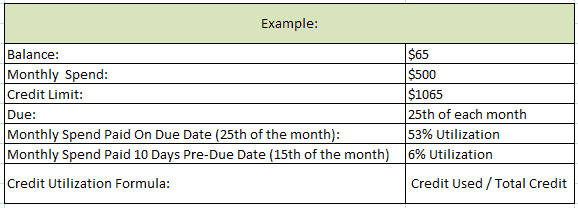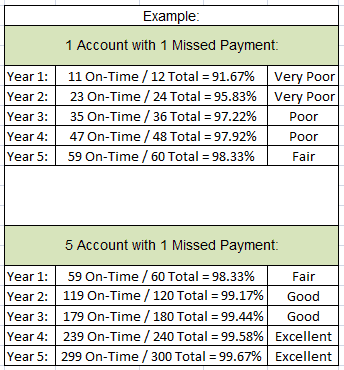Is it possible to raise your credit score by 100 points overnight !!
Table of Contents
A lot of companies claim to have secrets to raise credit scores 100 points overnight, but they won’t tell you what they are. That’s because at best, credit repair companies are charging a fee for things you can do yourself. At worst, they’re encouraging you to break the law. It is fairly clear that you can not ‘raise credit score 100 points overnights’. If someone promises you then be aware of that person or it’s time to stay away from that person.
Unfortunately, there is no foolproof plan for raising your credit score. It’s almost impossible that you’ll raise your credit score by 100 points overnight.
I have no problem telling you credit secrets and hacks that I know work. Banks don’t like you knowing this information because they make money off bad credit loans with high fees and expensive collection actions. Credit cards for bad credit have much higher interest rates and will ultimately just make your situation worse.
Stop letting the banks bully you into overpaying today based on mistakes you made years ago. Raising your credit score is an achievable goal, and that’s what we’re going to talk about today.
Take control of your credit by using this information the financial industry doesn’t want you to know about. They’re all legal, and we know they work based on how credit reports work.
This is how to truly raise your credit score by 100 points very fast.
TRICK: 1
Raise credit score using Credit Card – Game the System
Debt Ratio Optimization in a proven way – helps to raise your credit score
Now we get to the fun part, where I’ll teach you the magic number credit agencies really want you to carry in debt and why. So Optimize Your Debt Ratio and Game the System with This Powerful Trick.
Your FICO credit score is calculated using the following formula:
35 percent payment history
30 percent amount owed
15 percent length of history
10 percent new credit
10 percent types of credit
This means the bulk of your credit score is made up of on-time payments and how much available credit you have. Obviously paying your bills on time will improve your credit history over time. So we’ll focus on the debt-to-credit ratio.
Many experts will tell you to stick to 30 percent of your available credit. This means if you have $1000 of credit, you should only have balances totaling $300. But the truth is the more available credit you have, the better your score will be. So maintaining low balances on credit cards can raise your score by up to 100 points.
I recommend keeping your available credit at 94 percent. So does Experian. I checked my own credit report one day and that’s the advice they gave me to raise my own credit score. You should only be spending $6 for every $100 of available credit you have. If you want to successfully raise your credit to the best possible score.
What this shows creditors is that if something bad happens in your life (medical emergency, job loss, etc.), you still have access to funds to pay your bills for the next six months. This lowers your credit risk and makes you someone lenders love to work with.
So in practice, your credit limit will be five to six times high than your usage limit to game the system. I have another game-changing trick up my sleeves to increase your credit score.
Only spending six percent of your available credit makes it difficult to gain credit increases from your credit card companies. Because they’re not going to raise your limits on a card you never use. So, I use this powerful life hack to boost my credit scores into the stratosphere. And also you can have massive success with it too!
So what I do is charge and maintain a high balance on each card for two months. In the third month, I pay it all off and let it sit for two months. This way, I’m using my credit card enough for the bank. So the bank also continues raising my limit (thus raising my available credit). And at the same time, I am maintaining enough available credit to keep the credit agencies happy.
Master this method, and you’ll notice your score go within months. And there are a few more insider loopholes to instantly transform your life. All these tricks have the tremendous potential to increase your credit score that is already been proven.
Pre-Due Date Payments: A Powerful Life Hack to boost credit utilization piece of your score
One trick to boost the credit utilization piece of your score without really having to change your spending behavior is to pay your bill approximately 10 days before your due date.
Credit Utilization Formula: Credit Used / Total Credit
Credit Bumpers to Protect History – helps to absorb some of the impacts of a negative on your Credit History
Just one late payment that happened years ago, maybe when you were back in college, could significantly impact your score today. Therefore one trick to absorb some of the impacts of a negative on your Credit History is to use Credit Bumpers by adding more Accounts to your total number of Open Accounts. This example shows how much faster you recover from one late payment when you have 5 open accounts instead of just one.
Example:
Credit History Formula: On-Time Payments / Total Number of Payments
Can Service Accounts Impact My Credit Score?
Service accounts like utility bills, and phone bill payments don’t have any direct effects on the credit score but if you miss any payment and the account was referred to a collection agency then it could affect your credit score.
But there is good news a new product called Experian Boost allows users to get instant credit for on-time payments on utility and telecom accounts.
TRICK: 2
Piggyback hack to raise Score – Sometimes 100+ Points!
Piggybacking is probably one of the most underutilized and effective ways of boosting your score tremendously with little effort or time. So this can literally raise your credit score by 100 points. This is called piggybacking. It’s when someone with good credit adds you as an “authorized user” to one of their credit cards.
Usually, it’s with a relative or close friend. And finally, it usually requires a quick call to the credit card company. So most clients who have tried this Piggyback Hack to Boost Score have seen a significant boost in their credit scores in just over a month, about 45 days. So what happens? Finally, their positive credit will show up on your credit report. It helps to increase your credit score to achieve your targets.
What Types of Credit Cards Are Best?
1) Social Security # Required for Authorized User (major credit card issuers and some others)
2) No Negatives (no late payments)
3) Large Credit Limit (>$5000)
4) Low Balance (roughly 6%)
5) Long History (5+ years)
For more information on Piggyback hack and Cryptocurrency and No Credit Check Loans that can help you to increase your credit score visit our ‘No Credit Check Loans and Cryptocurrency – an opportunity to start‘ section.
TRICK: 3
Credit Repair Loopholes – helps to raise your credit score
We’ve discussed collection laws, but how creditors treat your credit report is also regulated by federal law, specifically the Fair Credit Reporting Act. There are three important sections of the FCRA that can help you clean up your credit: Sections 604, 609, and 623. Therefore use credit repair loopholes to increase your credit score.
Section 604 – Permissible purposes of consumer reports:
When a financial institution, landlord, or employer checks your credit report, it’s called a hard inquiry. These hard inquiries could lower your credit score and cause you to be denied credit. Especially when you made multiple hard inquiries in a short time span.
Section 604 provides guidelines for what constitutes a permissible hard inquiry, including a signed contract from you. What most people don’t know is these hard inquiries aren’t typically tracked by the credit agencies themselves. Instead, they use a third-party company called SageStream to track this data. This gives you a chance to increase your credit score.
Contact SageStream on their website to request a security freeze on your information. This will stop them from reporting hard inquiries to credit agencies. Subsequently, it may help to increase your credit score by a few points.
Section 609 – Disclosures to consumers:
On top of the FDCPA letters you send to collectors, you should also send an FCRA 609 letter to credit agencies. This piles the work onto the creditors and makes their lives more difficult. They now must respond to both your request and the credit agency’s request.
If the collector or credit agency doesn’t respond within 30 days, you now have a paper trail of them not working with you. You can send a non-response letter to have the items removed from your credit report. If it’s not removed, report them to the Better Business Bureau, FTC, or CFPB, and consider civil action in court.
Section 623 – Responsibilities of furnishers of information to consumer reporting agencies:
You would think creditors would keep accurate records of all information and accounts, but this isn’t the case. They often lose information, and this is the most solid defense used in foreclosure cases. Most of the time the mortgage company can’t provide the original paperwork and the court dismissed the case.
After you’ve disputed the negative credit items with the credit agency using Section 609 letters, Section 623 letters force the creditor to prove the debt is valid. If they can’t, you have legal grounds to pursue civil action in court, and following these three sections in order give you a solid defense to not only have your credit report corrected but also receive financial compensation for damages caused. You may continue reading to know more about other credit repair loopholes, you may skip if you already know.
Section 605 – derogatory information verification:
If the accurate derogatory information in the consumer’s file cannot verify, the reporting agency is required to remove it. Not just for the original company, this law required all the company that reports negative credit events needs to produce verifiable proof of the negative event. It cross-checks the accountability of credit reporting agencies for the negative information they pass on.
Due to this loophole, the reporting agencies need to investigate and remove any disputed, negative item from your credit report within 30 days if it cannot verify.
TRICK: 4
Disputing Negative items on Credit Report can raise Your credit score
Before going to start disputing negative, it’s very important to take preparation for many other things. Disputing negative can help you to raise your credit score but it will not raise your credit score by 100 points overnight. Here are all the things that you need to prepare before disputing a credit report.
Simple steps to follow when disputing negative:
- Get a free annual credit report
- Make an itemized list of everything showing on the reports
- Understand the credit scoring model
- Major agency’s Dispute departments contacts
- Simple Letter Format for Disputing Items on your credit report
If the agencies don’t respond the way they’re required to by law (which we’ll discuss in more detail below), don’t hesitate to fight Big Brother with an even bigger partner – the government. Because the credit score affects your life in many ways. What to do if the credit reporting agency refuses to fix your credit report. Read our blog about what’s next if the dispute with CRA’S not solved within 30 days.
Dispute the debts directly with your creditors and also can force-creditors-to-validate debt. Now we’re going to discuss the secret to defend yourself against collectors. Get excited, because your life is about to change! And this is how your credit score will increase gradually.
TRICK: 5
Removing a collection account will usually raise your credit score
It’s always good to stay on top of all three credit reporting agencies. When you contact a collector for settlement, you should try to agree with them to a “payment for deletion”. There is a good chance it will help to boost your score. You have to check whether you paid the collection or remove the collection account, and in both cases how many points you can earn.
In this regard you have two options: 1) A mortgage company can pull your credit in the last 30 days and they can run such a simulation. or 2) you can sign up for a three bureau-monitoring site for www.privacyguard.com and run the analysis.
These scores are consumer scores, not the FICO score but it helps you to decide which collection(s) should you try to pay or delete based on the potential score improvement. Of course, there may be another reason to pay for a collection. But if you are looking for score improvement, follow the instruction above or call us – we always use these tools. Not all agencies will agree to pay for deletion.
TRICK: 6
Eliminating your Old Debt can raise your credit score
Now we’re going to discuss another secret that will help you with improving your credit. As I told you earlier raising credit score 100 points overnight is quite an impossible task. But if follow all these strategies then it is possible to raise your credit score by 100 points so quickly.
Information that negatively impacts your credit report only stays on your credit report for seven years and 180 days after the incident. This doesn’t include bankruptcy, which remains for 10 years.
The “incident” is considered a late payment or charge-off. It is required by the Federal Deposit Insurance Corporation that after 120 days of delinquency, installment loans like a mortgage or car loan should be charged off. Credit cards and other revolving debt must be charged off after 180 days of delinquency. for more details and step-by-step processes visit our How to eliminate old debt section.
How to negotiate a debt settlement?
Once your account is charged off, it’s sold to a debt collector for less than 20 percent of the total balance. This gives you leverage to negotiate a settlement as low as 30 percent of the total debt. This is a trick many credit counseling companies use to consolidate and lower your bill payments.
Keep in mind, that settled accounts don’t help your credit score as much as paid-in-full accounts. But they don’t negatively impact it as much as unpaid debts. If the creditor doesn’t accept a settlement then try to eliminate old debt with the debt collector. Even though they purchase the debt for pennies on the dollar, debt collectors still attempt to collect the full balance.
Debt collectors also continue charging interest and late fees on your unpaid debt. This increases the amount of debt they can eventually sue you for. In most states, third-party collectors can continue adding interest for three to seven years, although sometimes it’s indefinite. This is why it’s important to settle all your debts as fast as possible.
Check your state laws to determine the statute of limitations in your specific circumstances. For example, in California, collectors have four years to legally collect.
TRICK: 7
Debt validation can raise your credit score
Debt validation can raise credit scores but it will not increase credit scores by 100 points overnight. Credit score increasing is an achievable job it takes a little bit of time and continuous effort. Debt validation helps to accelerate the process of raising a credit score by 100 points more quickly but does not boost credit scores overnight.
Now we’re going to discuss another secret that will help you with improving your credit. You should know the various excuses that are valid to dispute your debt and force your creditors to validate the debt so that it can remove from your credit report. Feel free to skip ahead if you already know this.
specific excuses Experian accepts to dispute the debt
Here are the specific excuses Experian accepts to dispute debt as of August 2023:
– Payment never late
– Not mine or no knowledge of account
– Account paid in full
– Account closed
– Unauthorized charges
– Belongs to the ex-spouse
– Balance incorrect
– Included in Bankruptcy
– Belongs to the primary account holder
– Corporate account
– The balance of history inaccurate
– Belongs to another person with the same or similar name
– Identity theft
Why do you force creditors to validate the Debt?
If you no longer have a relationship with the company, you may force creditors to validate the Debt. You can do this through your credit report dispute. It’s also a successful defense that uses by many debtors in court during foreclosure, repossession, and collection hearings.
Robo-signing was an abusive practice that was uncovered after the 2010 foreclosure crisis. Banks illegally falsified loan documents through a third party and used those documents to foreclose on people’s homes. It’s one of many secret practices used by creditors to stick you with debts you don’t know they can fight. So the moral of the story is always to force the creditor to validate the debt. It also helps you to increase your credit score. For more information on how to negotiate late payment and win against debt collectors in court visit the debt validation section of our website.
Popular Posts
- National consumer assistance plan
- Credit Monitoring FAQs
- Credit Repair Quiz
- Credit Repair FAQs
- Credit Repair Myths


